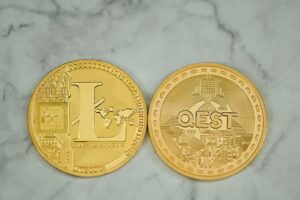Forex White Labels vs. Traditional Brokerages: Which is Right for You?
When it comes to trading in the forex market, there are two main options available to aspiring traders: forex white labels and traditional brokerages. Each option has its own set of advantages and disadvantages, so it’s important to understand the differences and choose the one that best suits your needs and trading style.
Forex white labels are essentially turnkey solutions for individuals or companies who want to start their own forex brokerage without the hassle of building a trading platform from scratch. This option allows you to leverage the infrastructure, technology, and regulatory licenses of an existing brokerage, while still maintaining your own brand and identity. On the other hand, traditional brokerages are the more established and well-known firms that provide direct access to the forex market.
One of the main advantages of forex white labels is the lower cost of entry. Building a trading platform from scratch can be a daunting and expensive task. By opting for a white label solution, you can significantly reduce the upfront costs associated with technology development, licensing, and regulatory compliance. This makes it an attractive option for individuals or small companies with limited capital.
Another advantage of forex white labels is the ability to focus on marketing and client acquisition. Since the technology and infrastructure are already in place, you can concentrate your efforts on building your brand and attracting clients. This can be especially beneficial for individuals or companies with a strong marketing background or network.
Additionally, forex white labels often provide a range of services and support to help you run your brokerage smoothly. This includes back-office support, risk management tools, customer support, and even marketing materials. This can be extremely helpful for those who are new to the forex industry or lack the necessary expertise to handle these aspects of the business.
However, there are also some drawbacks to consider when choosing a forex white label. One of the main concerns is the lack of control over the technology and infrastructure. Since you are relying on an existing brokerage’s platform, you may not have the flexibility to customize or enhance the trading features according to your specific needs. This can be a limitation for traders who require advanced technical analysis tools or specialized order types.
Another potential disadvantage is the dependency on the white label provider for regulatory compliance. While the existing brokerage may have the necessary licenses and regulatory approvals, it’s important to ensure that they are reputable and compliant with the relevant regulations. Failure to do so can result in legal issues and reputational damage for your brand.
On the other hand, traditional brokerages offer a more established and trusted option for forex trading. These firms have a proven track record and are usually regulated by reputable authorities. They provide direct access to the forex market, allowing you to trade with multiple liquidity providers and access a wide range of trading instruments.
Traditional brokerages also offer a higher level of control and flexibility over the trading platform. You can customize the interface, add or remove trading features, and even develop your own trading strategies using advanced tools and indicators. This can be a significant advantage for experienced traders who require specific functionalities to execute their trading strategies.
However, traditional brokerages often come with higher costs. In addition to the trading fees and spreads, you may also need to pay for platform access, data feeds, and other add-on services. This can be a deterrent for individuals or small companies with limited capital.
In conclusion, when deciding between forex white labels and traditional brokerages, it’s important to consider your specific needs, goals, and resources. Forex white labels offer a cost-effective and convenient solution for those who want to start their own brokerage with minimal upfront investment. Traditional brokerages, on the other hand, provide a more established and customizable option for experienced traders. Ultimately, the choice depends on your individual circumstances and preferences.






